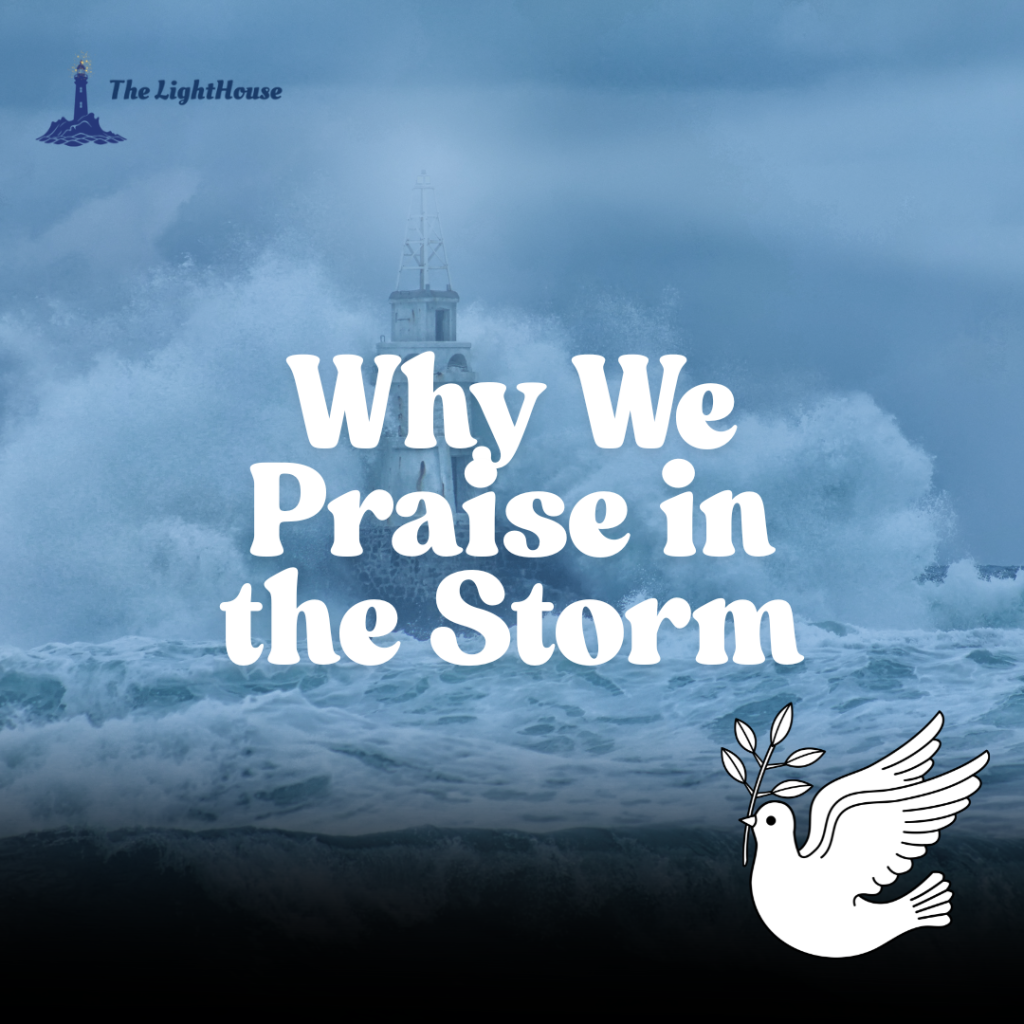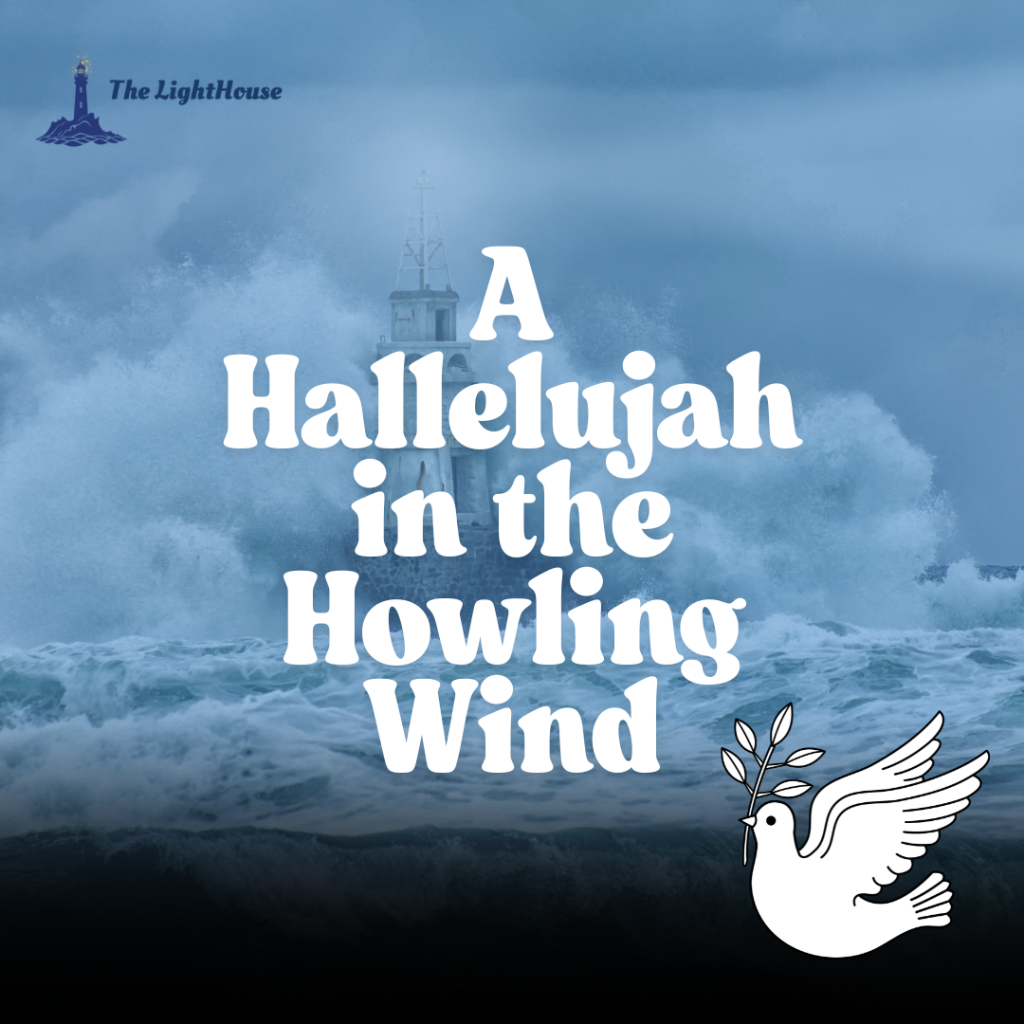Storms don’t send invitations. They show up, unannounced and unwelcome, interrupting our carefully planned lives. Whether it’s an unexpected diagnosis, a financial crisis, heartbreak, or simply a season where everything feels overwhelming, storms have a way of revealing what our faith is made of. And in those moments, perhaps the hardest yet holiest act is praising God in the middle of the storm.
But how do we praise when everything around us feels like it’s falling apart?
Why we Praise in the Storm

1. Praise isn’t a reaction; it’s a decision
The Bible is full of men and women who chose to praise God right in the middle of the storm, not after. One striking example is Paul and Silas. Beaten, bruised, and bound in a Philippian prison, they had every reason to despair. But Scripture tells us, “About midnight Paul and Silas were praying and singing hymns to God, and the other prisoners were listening to them” (Acts 16:25, NIV).
Their praise wasn’t dependent on comfort; it was born from conviction. They knew that even though their circumstances were dark, their God was still worthy. Their song wasn’t for show; it was a weapon. And what followed? A miraculous earthquake, chains falling, doors opening, and salvation entering a jailer’s household.
When we choose to praise in pain, we declare that the storm does not have the final say —God does.
2. Storms shift, but God stays steady
One of the most difficult aspects of enduring hard seasons is the unpredictability. One day you feel fine, the next you’re unravelling. But there’s a deep reassurance that comes from knowing we worship a God who never changes. Hebrews 13:8 reminds us, “Jesus Christ is the same yesterday and today and forever.”
When we praise in the storm, we’re anchoring ourselves to that truth. We remind our souls that while emotions and situations fluctuate, God remains faithful. He is still the One who parted seas, calmed waves, fed thousands, and healed the broken. And He is still doing miracles today, even when we can’t yet see them.
In moments of uncertainty, praise grounds us. It lifts our eyes off the waves and back onto the One who walks on water.
3. Praise is a protest and a promise
To praise in pain is to protest despair. It’s to say: I still believe. I still trust.
King David, often surrounded by his own storms, modelled this beautifully. He wrote in Psalm 42:5 (NIV), “Why, my soul, are you downcast? Why so disturbed within me? Put your hope in God, for I will yet praise him, my Savior and my God.”
That little word “yet” carries so much weight. It acknowledges sorrow but refuses to surrender to it. It makes room for tears without silencing truth. It says, “Even here, even now, I will praise.”
A Hallelujah in the Howling Wind

Praising God in the middle of the storm doesn’t mean pretending everything’s okay. It means choosing to honour Him even when it’s not. It’s the sound of faith rising above fear. It’s the posture of someone who believes God is good even when life doesn’t feel good.
And here’s the mystery: praise changes things. Sometimes it changes our situation. Other times, it changes us.
So, if you’re standing in the storm today, lift your voice.
Let your hallelujah rise; not because the storm is over, but because the One who holds you is bigger than anything that comes against you.
Let your praise be the proof that your faith isn’t in the boat; it’s in the God who calms the seas.
